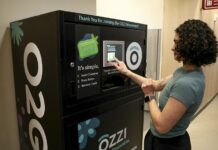Amcor, a global leader in developing and producing responsible packaging solutions, reveals new research into how packaging sustainability claims impact European consumers. The study – based on responses from more than 3,000 consumers in UK, Italy, France, Germany, Sweden, and Poland – shows that recyclability is now a must-have in the eyes of consumers. The majority (84%) of European consumers actively seek recycling instructions on packaged products, while 60% say that recyclability instructions and sustainability logos positively influence their purchase decision.
The study also found a significant rise in concern over global warming across European markets since the start of the pandemic – highlighting the need for brands and retailers to reduce their environmental impact by switching to more sustainable packaging.
Key findings include:
- Global warming is now the top environmental concern for 52% of European consumers, compared to 45% in early 2020.
- A fifth of European consumers (21%) identified plastic pollution as their top environmental concern (vs 32% in 2020).
- Italy showed the highest levels of environmental concern, with 62% of consumers worried about global warming; a 17% increase since 2020. And 96% of Italian consumers check recyclability instructions before they buy.
- In the UK, the understanding of recyclability logos has risen to 94% (up from 86% in 2020).
“As consumers become more aware of the environmental implications of their purchasing decisions, is it vital that consumer-facing brands and retailers take action,” explained Gerald Rebitzer, sustainability director, Amcor EMEA. “Adopting more sustainable packaging – such as moving to recycle-ready solutions and including post-consumer recycled content in place of virgin resources – are key for brands to demonstrate their commitment to drive circularity, reduce their carbon footprint, and help consumers buy more sustainably.”
Upcoming European regulations support consumers’ desire for sustainability
Consumer sentiment aligns with legislation on the horizon. The European Commission’s draft Packaging and Packaging Waste Regulation (PPWR) would make recycle-ready packaging mandatory from 2030, along with requirements to use a minimum percentage of recycled content in all plastic packaging.
And while the ease of recycling of packaging can still vary from one country to another, the research shows that paper is the 3rd highest sustainability claim likely to positively influence purchasing behaviour. Consumers understand what to do with paper because paper recycling streams are widespread across Europe today, meeting consumers’ desire to act.
Third-party sustainability claims must be easy to understand
Despite a high understanding of recyclability logos, the study shows that almost 80% of consumers in Europe do not understand what most other sustainability logos mean. Only 5% of consumers are willing to pay more for a product based on sustainability logos alone; a figure that rises to 20% when the logo includes a written explanation. For this reason, written sustainability claims are often more effective than logos alone. These findings are supported by the European Commissions’ Green Claims Directive, which found over 230 sustainability labels across Europe, contributing to consumer confusion. Clear, specific, and evidence-based claims are therefore crucial to minimize consumer confusion.
Rebitzer adds: “Since 2018, Amcor has been working towards our pledge to design all our packaging to be recyclable or reusable by 2025. In 2022, we announced that 83% of our global flexible packaging portfolio now has a recycle-ready alternative. Our commitment to recyclable packaging aligns with the need for expanding recycling infrastructure and supports the direction of the upcoming PPWR. This research further highlights the need for more sustainable packaging to support a growing circular economy while meeting consumer expectations.”




























